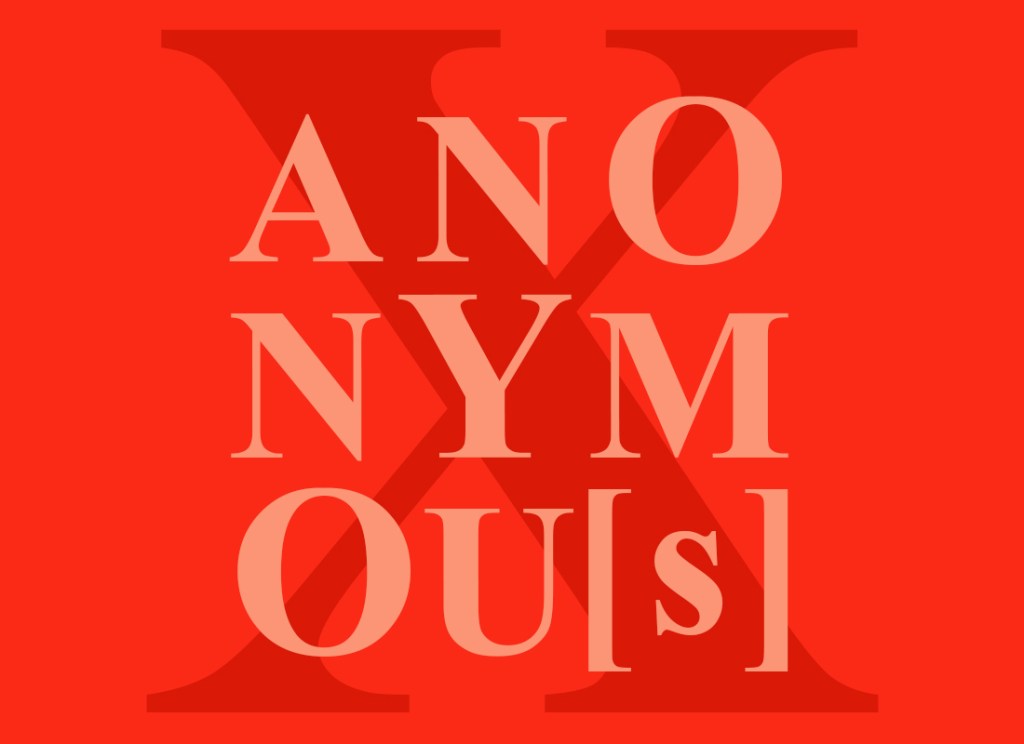ANONYMOU[S] is a brief series of texts submitted, read, and published anonymously, with the agreement of the author not to reveal themself.
Zip codes average around eighty-five square miles. Enough to lay our corpses end to end like stolen pearls. [Every pearl: the spoil of theft.] In five square miles of a city center, there are at least ten thousand people prepared to drown. Two of these people will meet once underneath a covered downtown bridge, dart their eyes toward and away, then dream of one another every other night for approximately two weeks. Two nights will be nightmares, one of them will be trampled by a jet-black horse. A covered bridge in a nearby county is continually destroyed by truck drivers who either ignore the height restriction or have no idea that trucks are closer to the stars than their mortgages.
The same two people will meet again between the pharmacist and florist, between a burn-scar in linoleum, polyester flowers, and shampoo. The city becomes smaller. The city is microscopic. A universe turns inside out, measuring the distance between one’s ileum and the other’s duodenum, between seven traffic lights and a finalized divorce.
Making our way into the city means we are obliterated by it. We could only hope for this, these boulevards—a dust of fiction. For being lost to some green mound, a smoldering of mosses, made to soak into walls where either one, the other, both or neither stood. Enter memoriam, remembering hands that came in sets of two, the obtuse bend of curbsides vans, delivery trucks, and limousines would jump, the one-way streets that people would forget are one-way until radiators kiss. Amnesia is a landing: a cool brick house in one-hundred-and-seven-degree lust. We merge two piles of ash in the corner of a kitchen. Bones at the foot of a queen-sized mattress.
The city ages us. The city is an aegis. Cardigans are killers: comfortable on days our younger skin wore shorter sleeves. Or less, when we wore care as afterthoughts, momentum drenched into our spleens. We’d tear the dawn apart like wet tarpaper, tissues soaked in nightclub smoke and second-hand cologne. Our cardigans are futures. A softening of tombs. I follow the footsteps of four buttons to a nearby mausoleum’s mouth. Your words for me seem horizontal, morning warm. They disappear at a train track’s bend.
An engineer hangs out of his truck, epiphytic; one boot is a hook on the ledge of the door. The other boot ends a straightened leg, the sole’s parabola—a measure of the world between control box and concrete base. He tinkers with the gates: lowering them, raising them, running them in rounds, some in silence, some in tandem with the warning bell. He lifts them once and we pass, you beneath it, I, around.
Scanning the gravel walkway, ten steps become one hundred, more, ahead of traffic. The trap of his practice holds them dead in orbit, then in retrograde. Mercury rattles in a black mesh landscaper’s trailer, shaking nebulas of straw across the exposed track. Venus, on hold in a pothole, grows more immodest as the metal plate is slowly rocked away. Mars barks, bite-less, from an old glass muffler.
The city continues to age us. The city is an agent. An acid tallying how much more it can strip away than sunlight or nostalgia. Tending to gardens we are willing sepulchers. Seasons which harbor cenotaphs, seeds that will outlive us. That will drink us under skyscrapers, from gutters, out of shallow puddles. Tearing us apart like wet tarpaper. But today, today we are horizontal. We are horizons, the still comfortable killers of avenue vapor, wearing street names under braids of wool, the brief, abiding phosphorescence of addresses on our breath.

